But Let Justice Roll on Like a River…
By Dr. L. William Oliverio, Jr.
It seems that if any biblical text might be appropriate for our moment in history, it may be the book of the Prophet Amos. In the book of Amos, the northern kingdom of Israel (which had been split from the southern kingdom of Judah a century before) stood in grand confidence due to its territorial expansion and increasing wealth, as well as its faithfulness in holding religious rituals in the Israelite tradition. But it was also good at worshiping other gods, and it was a society fixed upon injustices – especially abuse of the poor.
Along came Amos, a farmer from the borderlands along Judah and Israel (though from Judah’s side), who came and prophesied in the northern Israelite holy place, Bethel, and for some time. The book starts out with a series of divine judgments on the idolatrous neighboring nations of Israel. Now that’s good preaching, Amos – with judgments on violent Damascus, enslaving Gaza, treacherous Tyre, merciless Edom, child-murdering Ammon, Moab for its assassination of Edom’s king, and then even to Judah for rejecting the law of the LORD and being led astray by false gods.
The Bible Project video on Amos (Bible Project) nicely illustrates how the literary structure of Amos forms a spiral circling around – and then turning in to the northern kingdom of Israel. The LORD will be relentless on Israel, he prophesies, because,
“For three sins of Israel,
even for four, I will not relent.
They sell the innocent for silver,
and the needy for a pair of sandals.
They trample on the heads of the poor
as on the dust of the ground
and deny justice to the oppressed.
Father and son use the same girl
and so profane my holy name.
They lie down beside every altar
on garments taken in pledge.
In the house of their god
they drink wine taken as fines.” (Amos 2:6-8)
Innocent people are sold out. The needed are treated as cheap, lowly goods. Justice is denied. Women are treated as prostitutes. Any altar that creates profit or advantage is a place for business. They celebrate in idolatry. And, ouch, the house of “their god” assumes they are pagans, not worshipers of the LORD, Yahweh.
It is so easy for paganism and immorality and injustice to slip back under the guise of biblical faith, as Amos’ sermon to Israel mocks the religious trappings and observations in the places of worship,
“Go to Bethel and sin;
go to Gilgal and sin yet more.
Bring your sacrifices every morning,
your tithes every three years.
Burn leavened bread as a thank offering
and brag about your freewill offerings—
boast about them, you Israelites,
for this is what you love to do,
declares the Sovereign Lord.” (Amos 4:4-5)
The (in)famous statement “prepare to meet your God” actually comes from a portion of this sermon shortly after (4:12).
Then there’s this, the culmination of the sermon in chapter 5.
“Hear this word, Israel, this lament I take up concerning you:
Fallen is Virgin Israel,
never to rise again,
deserted in her own land,
with no one to lift her up.
This is what the Sovereign Lord says to Israel:
Your city that marches out a thousand strong
will have only a hundred left;
your town that marches out a hundred strong
will have only ten left.
This is what the Lord says to Israel:
Seek me and live;
do not seek Bethel,
do not go to Gilgal,
do not journey to Beersheba.
For Gilgal will surely go into exile,
and Bethel will be reduced to nothing.
Seek the Lord and live,
or he will sweep through the tribes of Joseph like a fire;
it will devour them,
and Bethel will have no one to quench it.
There are those who turn justice into bitterness
and cast righteousness to the ground.
He who made the Pleiades and Orion,
who turns midnight into dawn
and darkens day into night,
who calls for the waters of the sea
and pours them out over the face of the land—
the Lord is his name.
With a blinding flash he destroys the stronghold
and brings the fortified city to ruin.
There are those who hate the one who upholds justice in court
and detest the one who tells the truth.
You levy a straw tax on the poor
and impose a tax on their grain.
Therefore, though you have built stone mansions,
you will not live in them;
though you have planted lush vineyards,
you will not drink their wine.
For I know how many are your offenses
and how great your sins.
There are those who oppress the innocent and take bribes
and deprive the poor of justice in the courts.
Therefore the prudent keep quiet in such times,
for the times are evil.
Seek good, not evil,
that you may live.
Then the Lord God Almighty will be with you,
just as you say he is.
Hate evil, love good;
maintain justice in the courts.
Perhaps the Lord God Almighty will have mercy
on the remnant of Joseph” (Amos 5:1-15)
For, as is, their worship is not acceptable,
“I hate, I despise your religious festivals;
your assemblies are a stench to me.
Even though you bring me burnt offerings and grain offerings,
I will not accept them.
Though you bring choice fellowship offerings,
I will have no regard for them.
Away with the noise of your songs!
I will not listen to the music of your harps” (5:21-23).
The only answer is this, and it’s simple, if difficult for those married to corruption,
“But let justice roll on like a river,
righteousness like a never-failing stream!” (5:24)
That’s all. There’s no replacement for obedience, for righteousness, for justice – for true worship of the LORD.
So also with us. The call is to choose life, to love neighbors as ourselves, to work against systematic injustices, and to live with a heart of generosity and love and good will to others. Without love of neighbor, love of God rings hollow.
Amos will soon offer hope. But that hope is dependent, only, on the provision above from 5:24.






